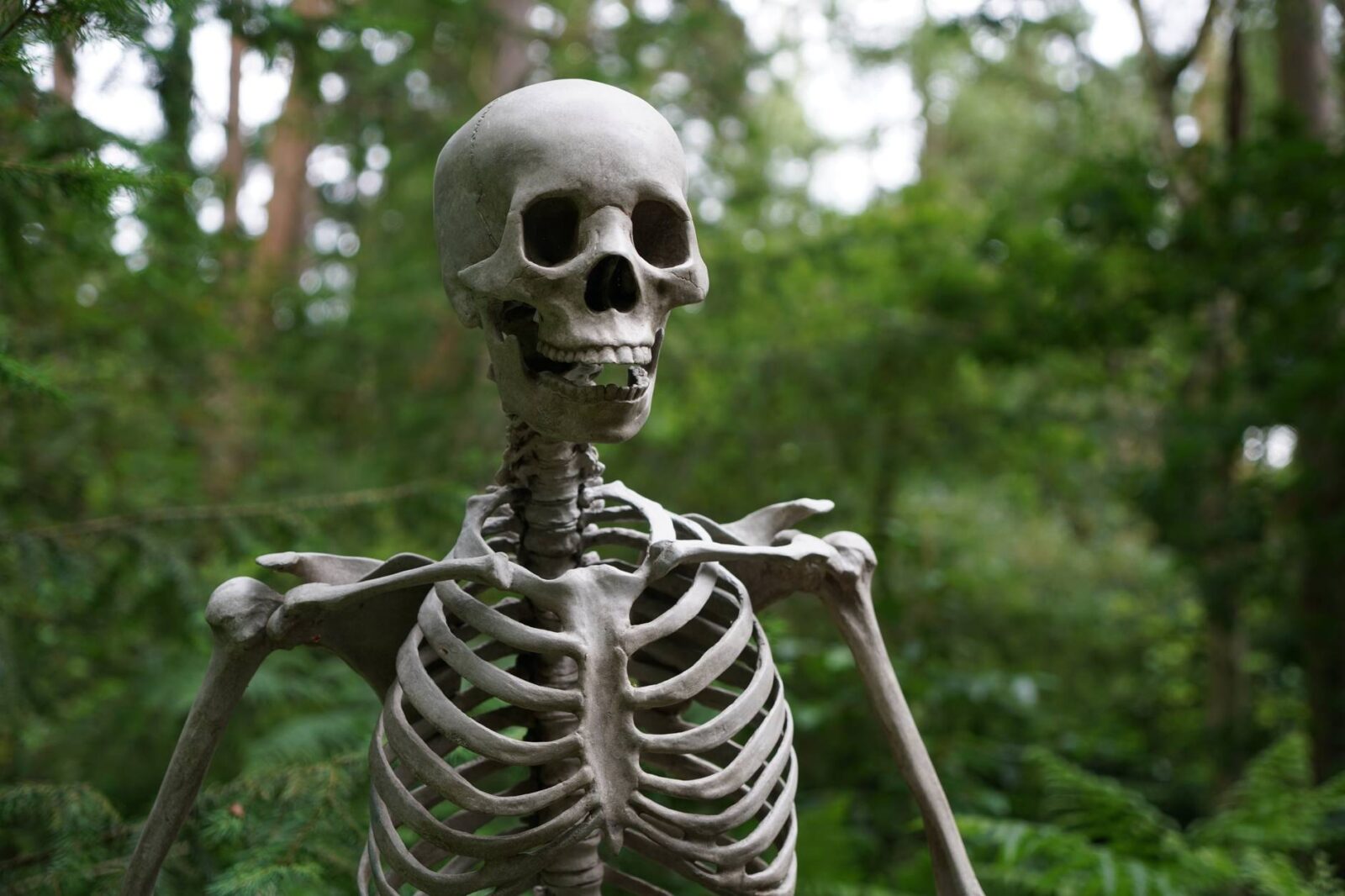Have you ever pondered the mystery that unfolds after we depart from this world? The concept of life after death has captivated the human mind for centuries. Within this article, we aim to delve into various perspectives on what transpires when we pass away.
Our exploration will encompass insights from Hinduism, personal narratives that shed light on unique experiences, and the revelation of intriguing facts that may challenge our understanding. Embark on this journey with us as we seek to unravel the enigma surrounding life after death.
Table of Contents
Life After Death in Hinduism
Hinduism, one of the world’s oldest religions, presents captivating beliefs about life after death. Dive into the idea of reincarnation, where the soul goes through a cycle of being born, dying, and then being reborn. Learn about karma, a principle that influences the soul’s journey through different lifetimes.
Explore the depth of Hindu philosophy by delving into the concept of reincarnation, understanding the intricate cycle that connects each life to the ones before and after it.
Uncover the significance of karma, a fundamental principle shaping the cosmic journey of the soul. In Hinduism, karma is the force that accumulates through one’s actions, guiding the soul’s trajectory across its various lifetimes.
Join us on a journey to unravel the mysteries embedded in Hinduism’s perspective on life after death, where the concepts of reincarnation and karma intricately weave the fabric of existence.

Unbelievable Facts About Life After Death
Let’s delve into some astonishing and almost unbelievable facts surrounding the phenomenon of life after death. Prepare to be amazed as we explore accounts of individuals who have undergone near-death experiences and returned with extraordinary tales. These narratives not only captivate our imagination but also challenge the conventional notions we hold about the boundary between life and death.
These incredible stories often involve individuals who, after encountering life-threatening situations, report having profound and otherworldly experiences. Some describe a journey through a tunnel of light, encounters with deceased loved ones, or even a review of their entire life. These near-death experiences provide a unique perspective that defies our conventional understanding of existence.
As we delve into these accounts, it becomes apparent that these stories are not mere figments of imagination but rather vivid and often life-altering experiences. They prompt us to question and reconsider our preconceived ideas about the nature of life and what might await us after death.
Join us on this exploration of the remarkable and sometimes perplexing stories of individuals who have peered beyond the veil of death, offering us glimpses into a realm that challenges the boundaries of our understanding.
Personal Stories of Life After Death
Real people have shared their personal experiences with life after death. Some say they’ve seen the other side during moments when they almost died, while others talk about talking with those who have passed away. These stories give us a peek into the feelings and changes that come with these experiences.
These personal stories often involve folks who, when things got really scary, describe going to a different place. They share feelings of finding peace, seeing a bright light, or even chatting with family or friends who are no longer here. The emotions in these stories go deeper than usual, showing us a special look into a world beyond ours.
Also, some stories talk about talking with those who have passed away. People describe feeling a connection, getting messages or advice that goes beyond what we usually understand. These stories make us think about our thoughts and if our relationships can keep going even after we’re not here anymore.
As we read these personal stories, we face the real and honest feelings tied to these special experiences. These stories not only make us rethink what we know but also make us think about how these experiences can really change how we see life, death, and how everything is connected.

After Death – What Happens to the Soul?
One big question is, what happens to our soul after we die? Different religions and philosophies have different views. We’ll look at various perspectives and try to understand what might happen to our soul once we’ve left this world.
Different beliefs suggest different things about what happens to our soul after we die. For example, in Hinduism, there is the idea of reincarnation, where the soul goes through a cycle of being born again. In Christianity, it’s often said that after we die, our soul faces judgment and experiences either eternal reward or punishment. Meanwhile, in Buddhism, the focus is on reaching a state of enlightenment and breaking free from the cycle of being born again.
Islamic beliefs include a Day of Judgment when souls are judged based on their actions, determining their eternal fate. Some people who don’t follow a specific religion might think that after death, there’s no continuation of the soul, and the focus is more on the impact one leaves on the world through their actions and legacy.
As we explore these different ways of thinking, we aim to understand the various beliefs that people have about what happens to the soul after death. This journey encourages us to think about the deep and personal aspects of our existence and the possible journey our soul might take after leaving this world.
Life After Death Movie: Portrayals and Reflections
Movies have a special way of showing us different ideas about life after death. Whether they’re old classics or new releases, films have told stories about what happens next. In this exploration, we’ll dig into the symbols, themes, and messages in these movies to understand the many ways they imagine life after we’re gone.
In the movie world, stories about life after death come in all sorts of styles, from heartwarming tales to futuristic adventures. Classics like “It’s a Wonderful Life” make us think about how our actions affect others, hinting at an afterlife where what we do continues to matter. Newer movies like “The Sixth Sense” or “Coco” take us on journeys that mix the living with the afterlife, telling stories that make us question what we know.
Symbols in these movies help tell deeper stories about life after death. It might be a magical journey or special guides that show us something more. Filmmakers use these symbols to share complicated ideas about what might happen when we pass away.
Themes in these films cover everything from thinking about right and wrong to the idea of getting a second chance and the strong force of love. The afterlife in these movies becomes a way to explore what it means to be human and the big questions we all wonder about.
Messages in these movies ask us to think about our own ideas about life after death. Whether it’s a fantastical adventure, a spiritual journey, or just something that makes us think, these films help us imagine what could be beyond life.

Life After Death Quotes: Wisdom Across Cultures
Throughout history, many thoughtful individuals have shared their ideas about what happens after life through quotes. These quotes, coming from diverse cultures and backgrounds, provide us with valuable insights and encourage deep contemplation. Let’s delve further into this treasure trove of wisdom, exploring a selection of these insightful quotes and reflecting on their profound meanings.
These quotes are like gems of wisdom, passed down through generations. They serve as windows into the minds of those who have pondered the mysteries of life and the potential existence beyond it. What makes these quotes fascinating is that they originate from various corners of the world, illustrating that the curiosity about life after death is a universal aspect of human contemplation.
Let’s explore a few of these quotes. For instance, the ancient Chinese philosopher Confucius once said, “We have two lives, and the second begins when we realize we only have one.” This quote encourages us to reflect on the significance of recognizing the preciousness of life and the opportunities it presents.
Another thought-provoking quote comes from the renowned American author Mark Twain, who remarked, “The fear of death follows from the fear of life. A man who lives fully is prepared to die at any time.” Twain’s words prompt us to consider the relationship between living authentically and facing the inevitable end with acceptance.
As we reflect on these quotes, we find that they not only offer wisdom but also serve as catalysts for personal contemplation. They challenge us to explore our own beliefs and perspectives on life after death. By engaging with these insightful quotes, we embark on a journey of intellectual and spiritual exploration, drawing from the collective wisdom of those who have pondered the mysteries of existence throughout history.
Life After Death in Hindi: Cultural Perspectives
Language is a powerful force in shaping what people believe, and Hindi, a significant language, has its own unique perspectives on life after death. Let’s take a deeper look into Hindi literature, stories, and cultural expressions to better understand these beliefs.
Hindi, a rich and expressive language, becomes a canvas for cultural beliefs. In Hindi literature, from ancient texts to modern writings, one can uncover reflections on life after death. Poems, stories, and philosophical works serve as windows into the diverse ideas and interpretations surrounding the afterlife, offering a rich tapestry of thought and contemplation.
Folklore, deeply ingrained in Hindi culture, adds another layer to our exploration. Passed down through generations, these folk tales are not just entertaining; they are repositories of wisdom that provide insights into life after death. These stories are more than mere narratives; they are cultural vessels, carrying the values and beliefs of the community.
Cultural expressions, such as rituals and ceremonies, offer a tangible glimpse into what people believe about life after death. Hindi customs, including funeral rites and memorial ceremonies, reflect the cultural practices surrounding death. Artistic expressions in music and art also play a role in conveying emotions and beliefs about the afterlife.
By exploring the linguistic and cultural aspects of Hindi, we gain a richer understanding of the beliefs that shape the worldview of its speakers. This journey through Hindi literature and traditions not only reveals the diverse perspectives on life after death but also highlights the interconnectedness of language, culture, and the profound mysteries that lie beyond mortal life.

Understanding Near-Death Experiences
Experiencing something called a near-death experience (NDE) can give us a special look into what might happen after we die. These remarkable moments often involve feeling like you’re floating outside your body, moving through a bright tunnel of light, and meeting people who have passed away. Let’s dive into both the scientific and spiritual viewpoints on NDEs to understand more about these extraordinary events and how they can change a person.
From a scientific perspective, researchers study NDEs to learn more about what happens to the mind and brain during these moments. Some scientists think that the brain might create these experiences, while others explore the possibility of consciousness existing beyond the body. It’s an ongoing puzzle that scientists are curious to solve.
On the spiritual side, many people who have had NDEs describe them as transformative and deeply meaningful. They talk about feeling a sense of peace, seeing a bright light, and meeting loved ones who have passed away. These experiences often bring a profound shift in how individuals view life, death, and the afterlife.
By exploring both scientific and spiritual perspectives, we aim to uncover the mysteries behind near-death experiences. These extraordinary events provide us with a unique glimpse into what might await us after we leave this world and highlight the profound impact they can have on those who go through them.
Coping with Grief and Loss
Dealing with the death of someone you care about is really tough. Understanding and handling the feelings that come with it are important for healing. Let’s explore practical ways to go through this tough time and help others who might be going through a loss too. Talking to someone, participating in rituals, and getting support from the community are important in helping cope with the deep impact of death.
Grief is a mix of emotions when someone you love passes away. It can make you feel sad, angry, confused, or even relieved. It’s normal to have these feelings, and everyone deals with grief in their own way. Knowing this helps in managing these emotions.
Getting help is a good way to handle grief. Grief counseling from a professional or talking in a group can provide a safe space to share feelings and find ways to cope. Talking about the person who passed away and remembering the good times can make you feel better.
Having ceremonies or rituals is another way to deal with grief. Doing things that are meaningful, like following traditions or religious practices, can give structure and comfort during this difficult time. It’s a way to honor the person who passed away and find support in shared customs.
Getting support from the people around you is really important. Being with friends, family, or a group who understand what you’re going through can make you feel less alone. Being part of a community that shares the same experience creates a sense of understanding and kindness.
Helping others who are grieving involves being a good listener, being patient, and showing that you care. Sometimes, simple acts of kindness or offering to help with everyday tasks can make a big difference. Understanding that everyone goes through grief differently allows you to provide support in a way that fits their needs.
Going through grief is not easy, but using these practical ways, seeking help if you need it, and having the support of others can help in healing. It’s important to remember that healing takes time, and everyone goes through grief in their own time and way.

Exploring Concepts of Heaven and Hell
Different religions and cultures have their own ideas about what happens after we die. Let’s look at the concepts of heaven and hell in various beliefs. These ideas range from eternal happiness to places where people are judged. Exploring these thoughts not only helps us understand why people are so curious about life after death but also shows the moral sides connected to different outcomes.
In many religions, heaven is thought to be a super happy place that lasts forever. It’s like a prize for living a good life, where you get to be super happy with a higher power or other special beings. Believers find comfort in the idea that doing good things leads to a fantastic and never-ending paradise.
On the flip side, hell is often seen as a not-so-great place where people might face tough times. It’s like a consequence for doing things that are considered really wrong or bad. The idea of hell is a way to encourage folks to be good and avoid actions that might lead to not-so-great outcomes in the life after this one.
In some beliefs, the afterlife isn’t split into clear heavens and hells. Instead, it’s like a range based on how someone lived. This emphasizes the importance of acting ethically and taking personal responsibility for one’s actions.
Understanding these different ideas about life after death helps us see the values and beliefs that shape various cultures and religions. It shows how people everywhere explore the mysteries of what happens after we die and why it’s important to live a good and meaningful life. The concepts of heaven and hell, with their moral lessons, give people a way to think about the results of their actions and strive for a purposeful life.
The Role of Rituals in Death
In different parts of the world, ceremonies for saying goodbye to someone who has passed away are really important. Let’s explore various funeral and burial traditions practiced globally and understand why they matter to different cultures. Whether it’s a big ceremony or practices that are kind to the environment, these rituals show how societies express their beliefs about what happens after we die.
Funeral ceremonies can be quite different from one culture to another. Some involve special rituals, prayers, and gatherings to honor the person who passed away and help the family and friends who are sad. These ceremonies are a way for people to come together, share memories, and find comfort in being with others who are going through the same feelings.
The way a person is laid to rest is also meaningful. Different cultures have various burial practices, like cremation or traditional burials, and each has its own cultural significance. Some cultures believe it’s important to return the body to the earth, while others see cremation as a way of transforming the soul.
Thinking about the environment has also influenced how people say goodbye. Some communities are adopting eco-friendly practices like natural burials or green cremation, trying to be gentle on nature. This connects with cultural values that stress the importance of living in harmony with the environment.
Funeral rituals often include religious or spiritual elements. This might involve prayers, songs, or specific actions meant to guide the soul of the person who passed away. These customs help not only in saying farewell but also in giving a way for the living to understand what might happen after life.
Looking into these diverse funeral and burial ceremonies gives us a peek into the wonderful variety of human cultures. It shows how different societies express their beliefs, values, and feelings about death, offering a shared way of understanding what might come after we’re gone. These rituals, whether old-fashioned or changing with time, show the lasting importance of respecting those who have passed away and finding meaning in difficult times.

Conclusion:
Our exploration into the mysteries of life after death has taken us through a rich tapestry of beliefs, experiences, and perspectives. From the teachings of Hinduism to the astonishing world of near-death experiences, from coping with grief to scientific inquiries into consciousness, each facet contributes to our understanding of what may lie beyond the threshold of mortality. As we continue to seek answers and grapple with the unknown, may this journey foster compassion, understanding, and a deeper appreciation for the mysteries that shape our existence.
What Happens After You Die?
Near-death experiences, coping with grief, and exploring concepts of heaven and hell provide varied perspectives on what might happen after death. Science, spirituality, and cultural practices contribute to the ongoing dialogue about the mysteries beyond life.
What Happens After a Loved One Dies?
Coping with grief and understanding the role of rituals in death are essential aspects of dealing with the loss of a loved one. Exploring diverse cultural practices and psychological insights provides a comprehensive approach to navigating the complex emotions associated with death.
Where Will We Go After Death?
Concepts of heaven and hell, as well as scientific perspectives on consciousness, contribute to our understanding of where the soul might go after death. The diversity of beliefs and ongoing research adds depth to the exploration of what awaits us beyond life.
Can You See a Loved One After Death?
Near-death experiences and the spiritual connection between the living and the departed shed light on the possibility of seeing loved ones after death. Personal stories, scientific inquiries, and cultural practices offer a holistic view of this intriguing aspect of the afterlife.




